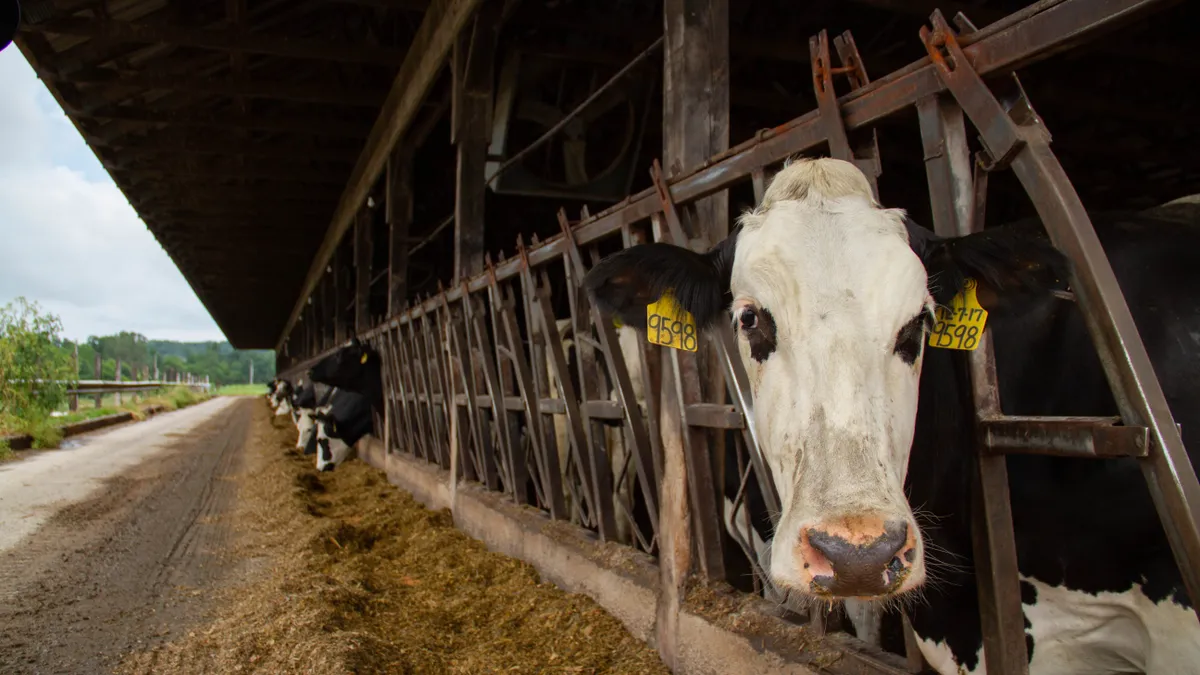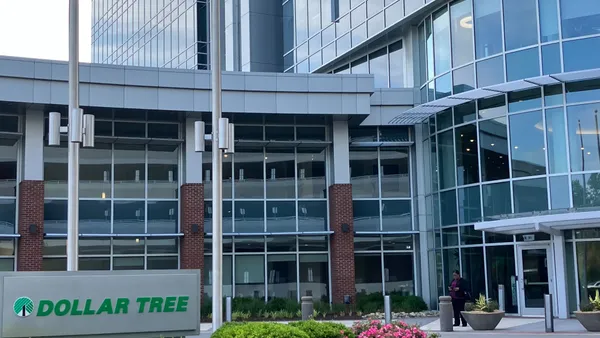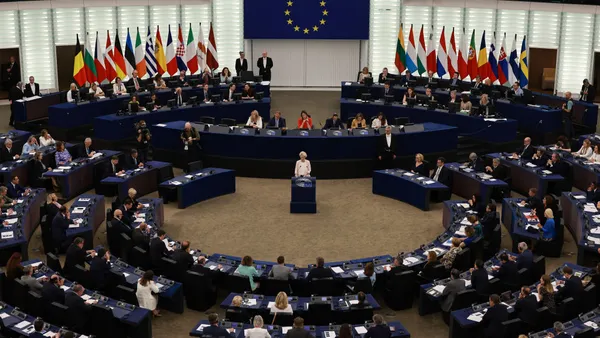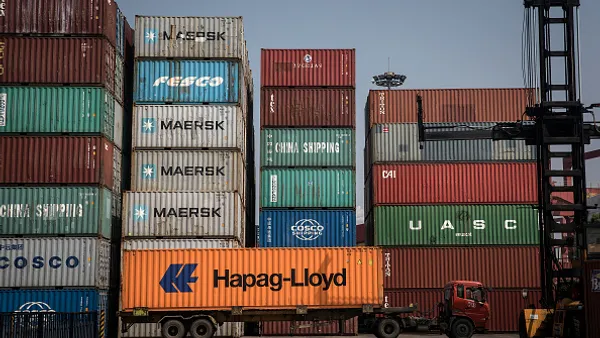Dive Brief:
- The Hershey Company and Land O'Lakes are partnering on a new initiative to reduce greenhouse gas emissions at Pennsylvania dairy farms and improve water quality in the Chesapeake Bay watershed. The Sustainable Dairy PA initiative will support agricultural conservation practices at 119 Land O'Lakes member dairy farms in Central Pennsylvania that ship at least half of their milk to Hershey.
- Hershey is providing $300,000 in initial funding for the initiative. The number of participating Land O'Lakes farms could grow to more than 400 as funding increases. The Alliance for the Chesapeake Bay, a partner in the initiative, will tap into additional grants to enact other on-farm environmental practices that can address emissions and protect water in the region.
- The partnership between candy maker Hershey and dairy provider Land O'Lakes highlights the opportunity to chip away at the growing environmental footprint of food production by focusing on the dairy ingredient supply chain.
Dive Insight:
As a member-owned cooperative representing more than 1,600 farms across the United States producing 12.5 billion pounds of milk annually, Land O'Lakes has considerable weight to throw behind the problem of pollution from the dairy industry.
According to the World Wildlife Fund, the dairy industry contributes 2% of total U.S. greenhouse gas emissions. It takes 144 gallons of water to produce 1 gallon of milk, most of it going to grow crops to feed the cows. A recent study by the University of Minnesota has attributed nearly 1,800 deaths per year to air pollution from dairy operations, surpassing those from poultry and egg production.
Of course, since there are about 32,000 dairy operations across the United States according to the American Farm Bureau Federation, Land O'Lakes' 1,600-strong co-op is only a piece of a sprawling industry. But the company has taken an especially aggressive approach in recent years to tackle the thorny issue of emissions, pollution and other impacts from its farms.
In March, Land O’Lakes announced all of its member-owners would complete on-farm sustainability assessments by 2025. The process began early this year with a data collection effort that will measure more than 250 sustainability attributes at each farm — including metrics to gauge fuel, electricity and water usage, nutrient application, crop rotation and manure use.
Beyond its collaboration with Hershey, Land O'Lakes is partnering with Bel Brands USA on a three-year pilot project to increase the use of sustainable agriculture practices, including cover crops. Land O'Lakes is also working to reduce greenhouse gas emissions at a member farm that supplies milk to the cheese manufacturer.
The dairy co-op has also found a way to incentivize farmers to participate in the growing carbon-emissions trading market. Its Truterra subsidiary, a sustainable stewardship solutions provider, launched a program in February to help farmers generate and sell carbon credits to private-sector buyers.
For its part, Hershey has been working to improve the sustainability of all of its ingredients sourcing. The company endorses the 11 sustainability criteria that are part of the global Dairy Sustainability Framework — including greenhouse gas emissions, water and soil quality — and works with its suppliers on hitting targets in these areas. And in March, Hershey announced a goal to reduce its direct and indirect emissions — defined as those within its supply chain — by more than 50% by 2030.
Other food industry players have also targeted the agricultural upstream to make sustainability improvements. Commodities giant Archer Daniels Midland pledged to remove all deforestation from its supply chain by 2030. As part of its new Policy to Protect Forests, Biodiversity and Communities, ADM has also emphasized conserving water and biodiversity in agriculture, and finding ways to cut emissions.
As the United States emerges from the pandemic and demand for sweets and snacks grows, more supply-chain-focused efforts like Hershey's collaboration with Land O'Lakes will be necessary to help the company chip away at its emissions goal and reduce its overall environmental footprint." Considering that most of the fluid milk that ends up in the candy and snack maker's products comes from within a 100-mile radius of its factories in Hershey, Pennsylvania, an initiative like this can have a big impact.

















